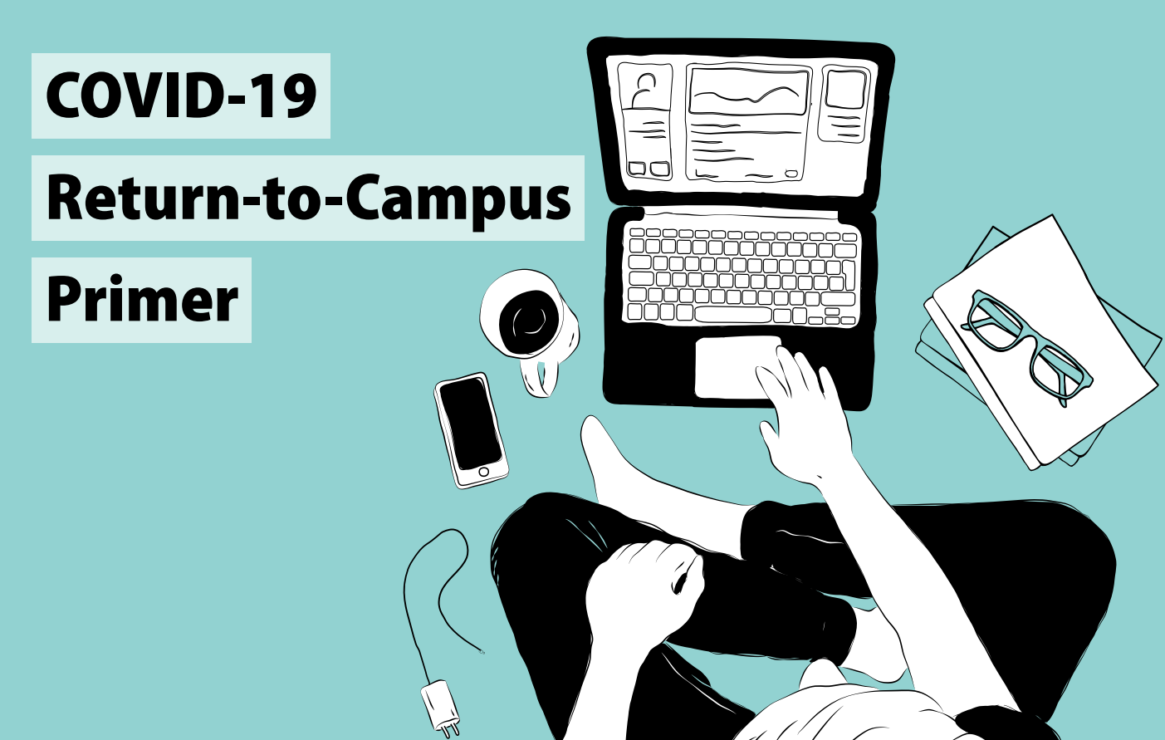Masks may be required, but vaccines won’t be

UVic is planning for a return to campus in the fall. Last week, the B.C. government released a new Return-to-Campus Primer with more details and recommendations for the upcoming semester.
Although some details remain unclear, the new primer offered important information about vaccines, social distancing requirements, on-campus housing, and course delivery. More details about specific courses are expected at the end of May with the release of UVic’s Winter Session Timetable.
UVic hasn’t released specific information about how these recommendations will impact the fall semester, but the primer gives the university community a first look into the fall.
Vaccines won’t be mandatory
Everyone 18 and over will have had the opportunity to get their first dose by July. Both the province and UVic are encouraging the university community to get the vaccine but they are not making the vaccine mandatory in order to return to campus.
Any adult in B.C. can get the vaccine, including international students and students from other provinces. The province says people will not need a Personal Health Number, BC Services Card or to be enrolled in B.C.’s Medical Services Plan to get the vaccine.
At the time of writing, anyone 18+ in B.C. can register to get the vaccine. The province is currently booking appointments for people 54+, Indigenous people 18+, clinically extremely vulnerable people, and those over 40 in communities with high transmission rates. The AstraZeneca vaccine is available through pharmacies for people 30+. The province says most pharmacy appointments are full and they are awaiting more supply from the federal government.
By the fall, the province expects that transmission will be low and serious cases will be rare. They maintain, however, that COVID-19 will not be eliminated.
No distancing in classrooms
In the Return-to-Campus primer, the B.C. government says physical distancing won’t be required in classrooms. In a classroom with 150 seats, for instance, 150 students can fill those seats.
“Two-meter physical distancing has been my guidance for uncontrolled group settings,” Provincial Health Officer Dr. Bonnie Henry wrote in the primer. “Such distancing is neither practical, nor necessary, in the controlled context of post-secondary instructional settings.”
The government recommends that students pick one seat at the beginning of the semester and stick to it. If anyone exhibits symptoms of COVID-19, they should not come to class.
Masks also may not be required, although the recommendations on masks are less clear. While the province suggests that masks may be required in common areas, the primer maintains that this will depend on transmission rates in the local community.
UVic did not require masks in classrooms for the majority of the 2020-21 academic year. The university changed this in April and now requires masks in all indoor spaces on campus.
More details on in-person classes for fall
UVic will be predominantly in-person in the fall, but there are some notable exceptions. Although the full class schedule won’t be released until later this month, UVic Faculty Association President Lynne Marks shared some plans in an e-mail obtained by the Martlet.
Marks said 100-level courses with over 100 students may have one section online. Additionally, courses that normally have over 50 international students may have some sections online, along with courses needed for the academic writing requirement.
The e-mail also suggests that classes will not be taught in both online and in-person modes unless instructors opt for that. Instructors can also request a family or medical accommodation and teach their classes online.
Marks quoted the VP Academic and suggested that deans could further request online delivery for specific classes.
“Deans may also include requests for changes to mode of delivery for singular courses […] including cases such as, but not limited to, medical or family status accommodations requests, […] workforce availability issues, student need, or pedagogical best practice.”
Marks said the faculty association has been involved in discussions with UVic and the province. She continues to be concerned that the current plans don’t allow for physical distancing in classrooms and that some classrooms may not have sufficient ventilation.
Residence to return to full capacity
In 2020-21, 700 students lived on campus — considerably less than the normal 2 300. With the full return to campus in the fall, the province expects on-campus housing to be able to return to full capacity or close to it.
UVic President Kevin Hall says first-year students will be prioritized for residence spots, followed by other undergraduate students and graduate students.
Last fall, students did not let the pandemic stop them from partying. In the first two weeks on campus, gatherings of over 100 students were put to a stop by the Saanich Police Department. On the second weekend, 25 party-goers received $230 fines.
Karen Johnston, associate director of public affairs, said UVic continues to spread awareness among students about the public health orders through various methods. Johnston says data around COVID-19 infractions on campus will be released later this month.
President Hall, Dr. Bonnie Henry express confidence in return-to-campus plans
The province continues to work alongside UVic to finalize the fall plans. They are confident, however, that a full return to predominantly in-person classes is feasible and safe.
“Despite the current health and safety environment, we have reason to be hopeful,” Hall said in a press release. “Vaccination programs continue, and public health officials confirmed in late April that UVic — along with other post-secondary institutions in BC — should continue to plan for a predominantly in-person fall term.”
Henry echoed this sentiment in the Return-to-Campus Primer. She is confident that the vaccine plan will allow all adults to be vaccinated by summer.
“My office and our medical health officers share your concerns about the wellbeing of young adults who are disproportionately affected by the pandemic, including worsening mental health, increased financial instability and diminished future prospects,” Henry said.
“It is imperative to get back on campus for everyone’s health and well-being.”







